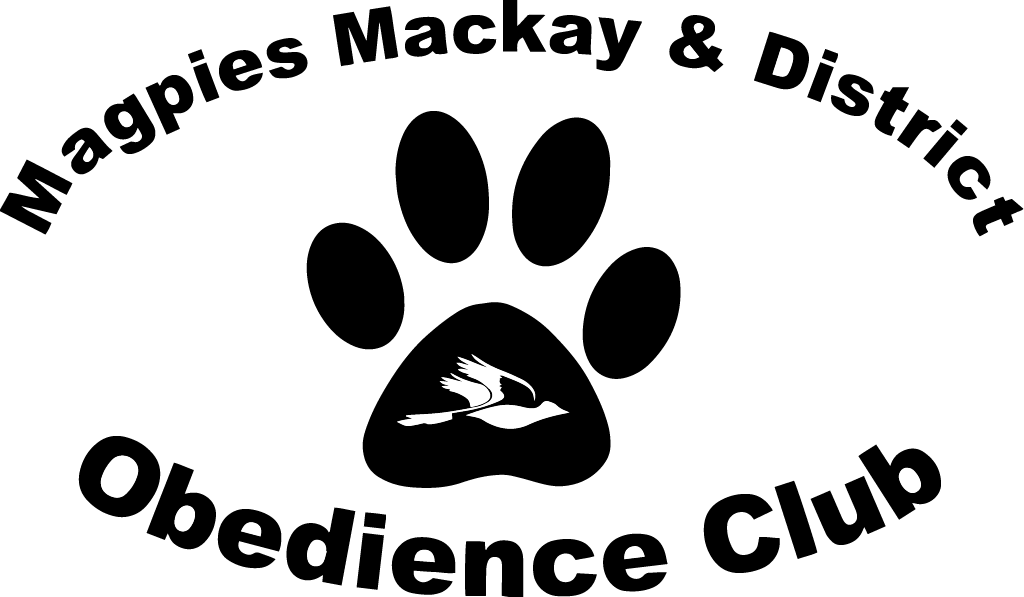Obedience Training
Current members returning to the club
Membership renewals will take place at the Dog House on the first week of February.
No dogs please.
Sign-on commences on the first Tuesday of February for all members. Classes will commence on the second Tuesday of February.
New Members
If you want to join the club and attend Obedience classes, please check out our New Member specific information (click below or go to the New members Tab).
Promotion through the classes is based on instructor assessment of proficiency. Some breeds learn some exercises more quickly than others and young dogs will have a shorter concentration span. Patience and consistency combined with practice will give you the results.
Classes
Class 1 (ONE)
Will teach handlers skills such as basic responses, the heel, drop, stay, stand and recall.
Class members are assessed by their instructor before promotion to Class 2.
Class 2 (TWO)
Extension work and refinement of all the skills you learn in class 1.
Assessment by the class instructor is required before promotion to Class 3.
Class 3 (THREE)
Further refinement of heel work, advanced turns, extension of stay and recall exercises, introduction to dumbbell work together with the stand and finish in preparation for CCD (Community Companion Dog) trialing standard leading toward CD (Companion Dog) trialling standard. Instructor promotion is required before advancement to fourth Class and Instructor recommendation to Agility Instructor.
Class 4 (Four)
Extends all earlier work together with Community Companion Dog and Companion Dog requirements.
Members of this class are also recommended by their instructor for Agility.
Encompasses all aspects required for trialling and advanced training as required by class members together with ring preparation as required.
All instructors have flexibility within the club’s class structure and will use various methods, techniques and exercises approved by the club to offer the best outcomes for their class members and their dogs.
Homework!!
Ten minutes of productive training a day will ensure your dog’s progress through the exercises. Training away from your home yard at times is not only an outing for your dog but further tests your dog’s stability in an unfamiliar place. Do remember though that it is against council by-laws to have a dog off its lead in a public place.
Whether obedience training for the basics around the home, a fitness thing for you and your dog or with a view to competition, it is recommended to aim for the advanced class for a solid basis in control and stability.
Once you have reached an appropriate level of control you have a number of exciting directions you can follow. In the obedience discipline the open, utility exercises expand into scent work, jumping and retrieving. Agility prep and Flyball is commenced in Tuesday classes. However, Jumpers/Agility and advanced Obedience work takes place on Wednesday evenings. Tracker dog (Tracking) is also available on request.
A Few Safety Reminders
Please observe the 2 metre rule with respect to dogs being apart (before, after and during training).
Appropriate footwear is essential for the safety of you and your dog. (ie. Joggers, or fully enclosed, non flip-flop flat heeled shoes)
Children not engaged in training activities must be the responsibility, and under the supervision, of an adult.
Dogs should not be tied up or left unattended wearing a check chain. This is a training device and should not be used as a general collar.
Notes for Beginners
For a short time each day, you and your dog will be involved with a balanced combination of training, play that you are involved with and some days socialising.
A positive imprint of the training experience is important therefore your training time should be followed by an enjoyable game or play. It will be a pleasurable package deal. Training will be associated with the play after. The driver for your dog here is ‘what’s in it for me’.
Socialisation exercises can be a weekend outing for the whole family here as it is an exercise with the whole world:
A walk in the park (don’t forget your poo bags though)
Outside a busy shopping centre
Trip to the beach
This is not literal in that your dog is socialising with other dogs but with the rest of the world, taking in new experiences, situations, noises and the presence of other people doing other things.
We will also ask you to magnify your position with your dog in a number of ways:
Remember, there is NO democracy in an animal pack, that is not how nature works.
The leader decides and the pack does it.
Do not confuse your dog by exhibiting your leadership at training, then becoming subservient to every whim once you arrive home. This will guarantee failure as you need to BE CONSISTENT.
Feed your dog after you eat and never from the table at meal times.
No jumping up at your body, face, leaning on your body, standing on your feet—these are displays of dominant posture.
No barging through doorways or gates in front of you
Take charge when visitors arrive or someone walks past. Dogs will bark the alert, but that is where their job ends when you as the leader take over.
Ask questions in class, read books on your dog's breed to find out ‘character’ traits that are expected from your dog. Give your training a fair go, but if something is genuinely not working—there are many other methods to try. Talk to your instructor.

